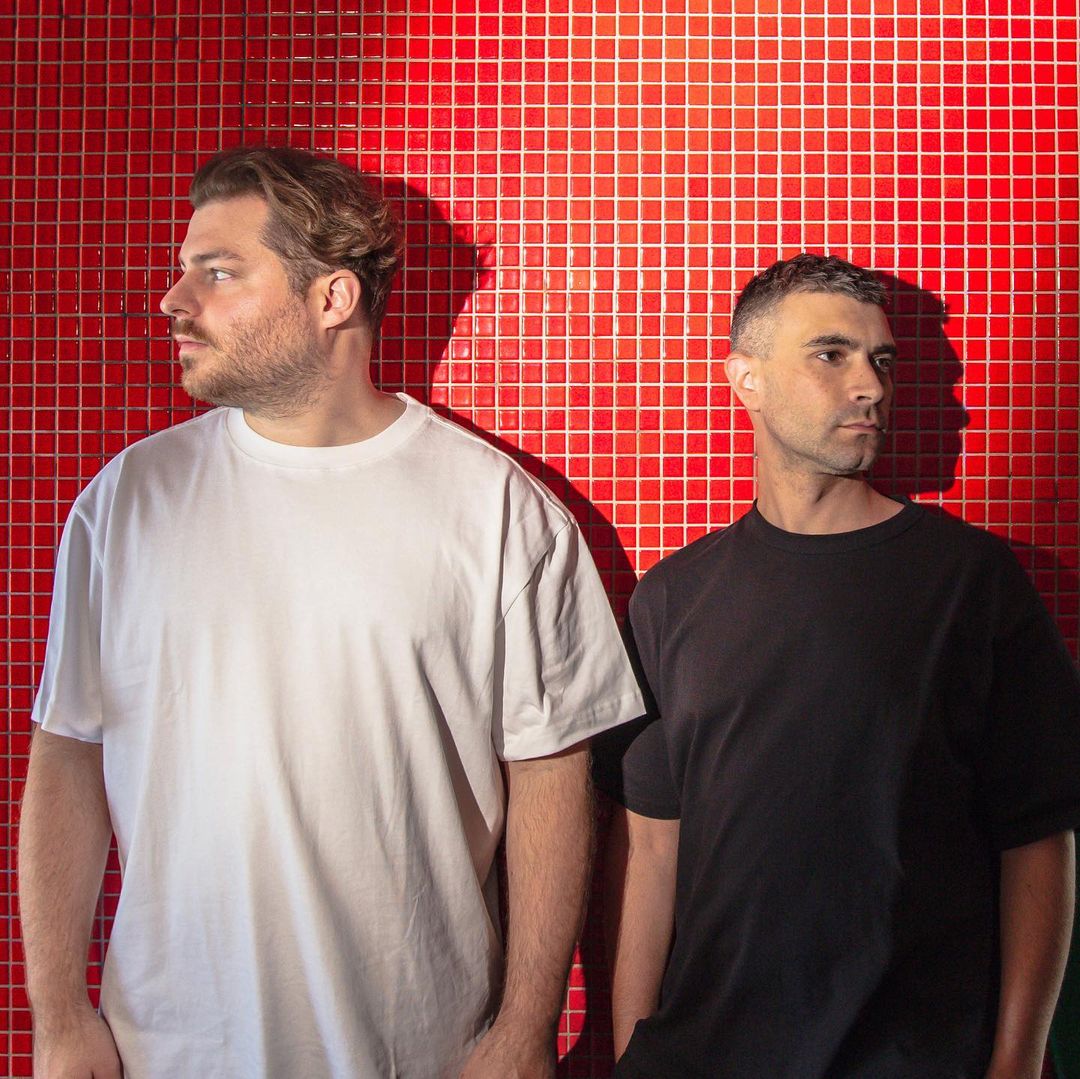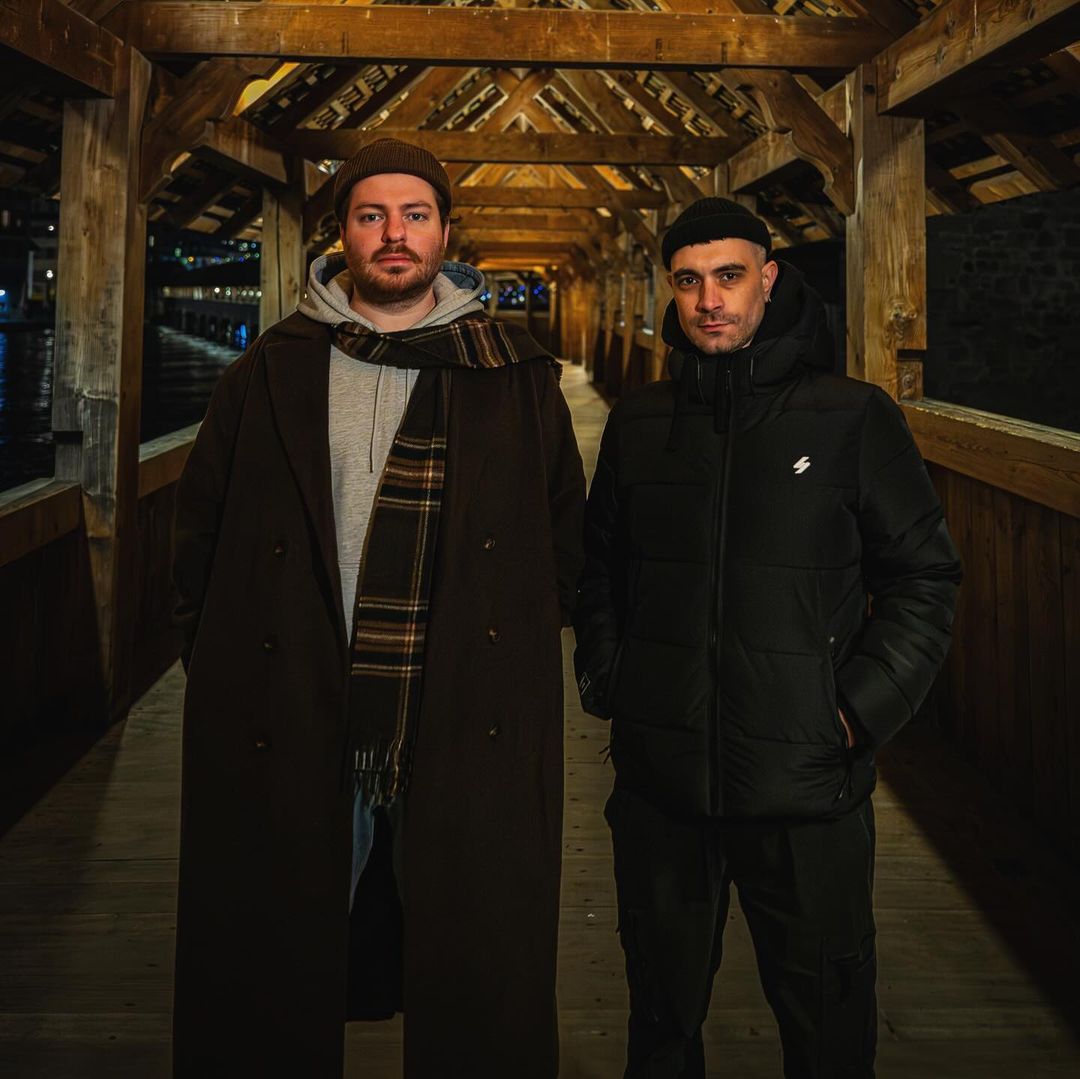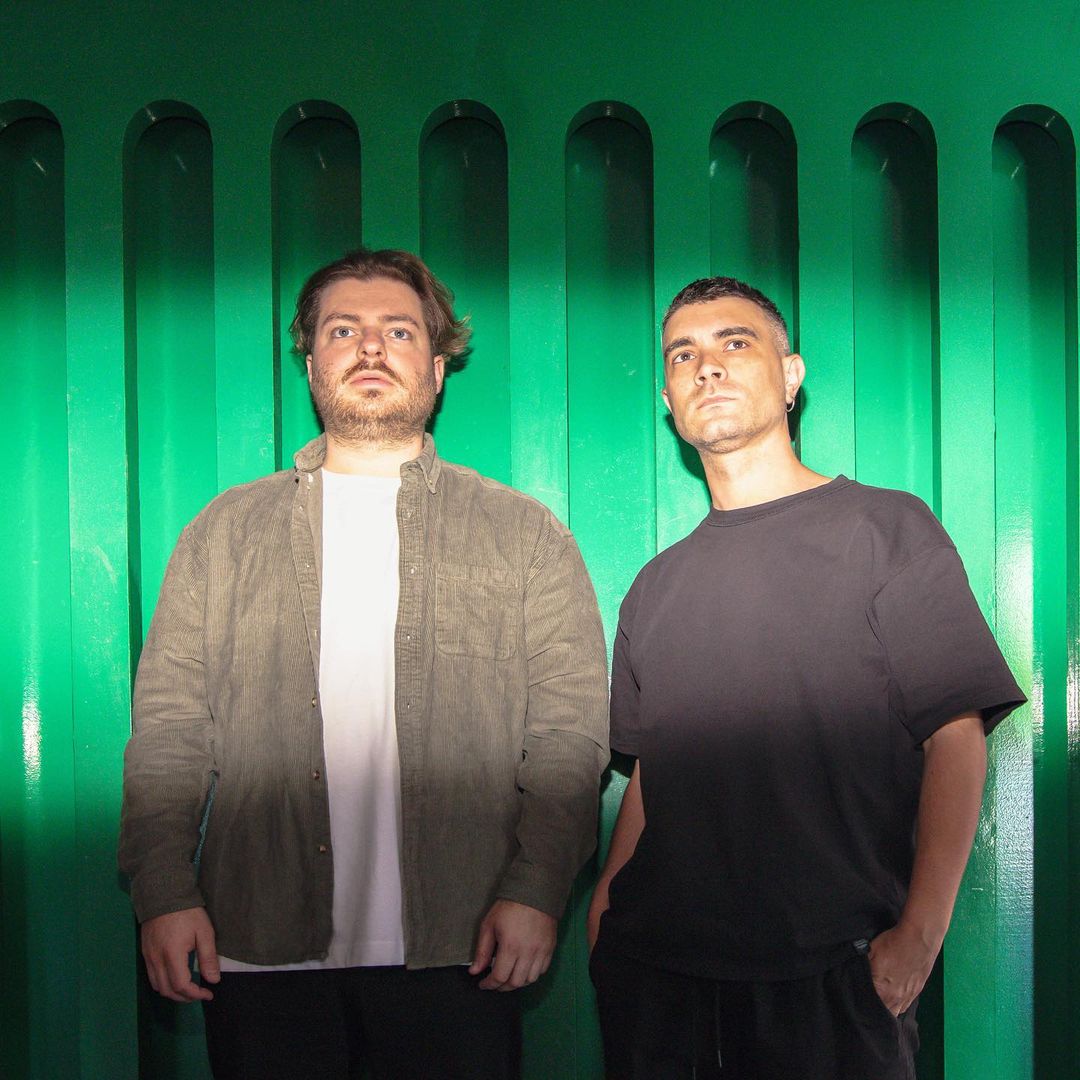A progressão musical do duo alemão Teenage Mutants tem sido uma jornada e tanto para aqueles que acompanham desde o início. Ao longo dos últimos 14 anos, eles moldaram a própria identidade avançando de um Deep House elegante em direção a um Techno pulsante, com batidas aceleradas que atingem 136 BPM em alguns casos. Esta transição não apenas reflete a evolução de Christian e Fabio como artistas, mas também demonstra a capacidade deles de se reinventarem, explorando novos horizontes enquanto mantêm a essência criativa intacta.
Não é exagero dizer que hoje eles se encontram no auge de suas carreiras. Conquistaram um reconhecimento internacional indiscutível e acumularam uma impressionante discografia com faixas lançadas em selos como Stil vor Talent, Suara, Tronic, 1605, Terminal M, Filth On Acid e em seu próprio Tragedie, além de terem lançado no ano passado pela Drumcode a icônica “Dark Clouds”, que atingiu o Top #1 no chart de Techno no Beatport sendo a track mais vendida de 2023 dentro da vertente — e segue sendo a Top #1 da Drumcode até o momento.
Agora, mais um importante passo está sendo dado com o lançamento de seu novo mini álbum Die Tragödie, que será composto por quatro faixas inspiradas nos quatro atos de uma tragédia clássica: raiva, amor, confusão e caos. A primeira delas, “Exposition”, chegou no último dia 29 de março e a segunda, “Climax”, será lançada no próximo dia 19 de abril, enquanto “Peripetie” e “Katastrophe” estão agendadas para maio.
Nós falamos com Christian e Fabio para entender um pouco mais sobre este disco e também desvendar os próximos passos da dupla:
Olá, meninos! Obrigado por nos receberem para esta entrevista. Gostamos sempre de começar falando a respeito do tópico principal, que neste caso é o seu “mini álbum” Die Tragödie. Um álbum geralmente tem um número maior de faixas, mas neste caso possui apenas quatro, isso porque as faixas possuem uma história que conecta todas elas, correto? Nos contem mais sobre o conceito por trás desse trabalho? Como foi o processo criativo de traduzir os quatro atos de uma tragédia clássica em música eletrônica?
Olá! Já estávamos há um bom tempo querendo fazer um álbum no estilo clássico, com umas 12/13 faixas, incluindo intro, interlúdios, algumas solo e outras com artistas convidados. Mas percebemos que hoje em dia a atenção do público é mais breve, então decidimos focar em um mini-álbum com apenas 4 faixas, lançadas em nossa própria gravadora em um curto período de tempo, para depois fazer um lançamento com todas juntas. Parece que o formato está funcionando até agora. A primeira faixa tem permanecido por um bom tempo no top 10 de Techno no Beatport, e temos recebido um enorme feedback de outros artistas e de nosso público. Em termos de processo criativo, nos inspiramos no conceito que seguimos também para nossa gravadora Tragedie, de recriar temas da Grécia antiga, que são universais e continuam relevantes até hoje, 2600 anos depois. São basicamente a essência da experiência humana: raiva, amor, desorientação e caos.
E quais outras influências foram utilizadas (ou podem ser percebidas) ao longo dessas quatro faixas? Vocês buscaram inspiração em literatura, cinema ou outras formas de arte? Alguma delas possui um significado mais profundo ou representa algo mais íntimo de vocês enquanto pessoas e artistas?
Claro,seja na literatura, no cinema ou até mesmo nas artes plásticas, esses temas são explorados e utilizados desde sempre. Porém, na música instrumental, como é o caso da música eletrônica, fora dos estilos clássicos, essa abordagem a esses conceitos tem sido menos frequente. Quando há letras, é mais fácil transmitir esses temas, mas nós procuramos ser um pouco mais sutis. Sempre nos inspiramos no que lemos e vemos em outras formas de arte, e por isso queríamos reinterpretar esses tópicos na música que criamos.

Na metade de 2023, de maio até dezembro, a Tragedie ficou com um hiato de lançamentos até ser retomada com o EP Fashion. Como foi esse período pra vocês? Isso aconteceu por conta das turnês cansativas? O selo é gerenciado apenas por vocês dois ou há mais alguém trabalhando junto na parte de curadoria?
Nós dois cuidamos da parte de A&R, mas contamos com uma pequena equipe que nos auxilia na gestão da gravadora para manter as coisas organizadas, senão acabamos nos perdendo um pouco… ahahah Esse intervalo foi justamente para reestruturar a equipe e também a parte gráfica, pois queríamos fazer mais e melhor. Acredito que essa pausa tenha sido benéfica. Uma pausa para respirar.
Coincidentemente ou não, foi exatamente nesse mesmo período (maio) que vocês lançaram “Dark Clouds” pela Drumcode, faixa que causou um enorme estrondo na cena Techno e que é o release mais importante de vocês até o momento. Como esse sucesso impactou a carreira do Teenage Mutants nos meses seguintes?
Na verdade, não foi coincidência. Sabíamos que teríamos uma atenção maior do público para tudo o que fizéssemos, e uma das coisas com as quais não estávamos completamente satisfeitos era a editora. Foi o momento ideal para fazer as mudanças necessárias. Desde o lançamento de “Dark Clouds”, não temos parado! Já tínhamos uma agenda bastante ocupada antes, mas agora está ainda mais cheia!

Voltando um pouco no tempo… vocês deram uma entrevista para o portal brasileiro Alataj em 2016 — e com certeza as coisas mudaram muito de lá pra cá, afinal, passaram-se quase 10 anos. Algo que percebemos foi que a intensidade da música de vocês subiu muito, os 126-128 BPM ficaram para trás e deram lugar para faixas que chegam até 136 BPM. Imagino que isso tenha sido uma mudança natural, mas por quais outros motivos vocês acreditam que o som de vocês ficou tão mais rápido?
Foi uma transição natural. Antes disso, já tocamos músicas ainda mais rápidas do que 136 bpm e, em outras ocasiões, tocamos músicas bem mais lentas do que 126 bpm. É possível que um dia voltemos a tocar músicas mais lentas. Em nossos sets mais longos, geralmente em nossas residências em Berlim, no Ritter Butzke, ou no Waagenbau em Hamburgo, temos mais tempo, então muitas vezes começamos de forma mais lenta e suave.
Independente da velocidade, algo que merece ser destacado é que a música de vocês ainda permanece fiel à ideia do “Techno With Drama”, que mistura tanto elementos hipnóticos mais inebriantes com uma atmosfera mais profunda, criando momentos de tensão em quase todas as produções de vocês. Quão fundamental foi encontrar essa veia criativa que hoje guia a identidade sonora do Teenage Mutants?
Com certeza! O BPM é totalmente secundário. O que importa é a dinâmica do arranjo, o design sonoro, a mixagem, a masterização, a harmonização das faixas que tocamos ao vivo e a seleção. É interessante vocês mencionarem isso, porque uma das faixas deste mini-álbum segue exatamente essa linha. Deixamos a letra um pouco ambígua para fazer as pessoas refletirem, não queremos fornecer a resposta, mas sim provocar a introspecção.
Agora falando sobre o presente e o futuro: poderemos vê-los pelo Brasil em breve? Há alguma previsão de realizar uma tour pela América do Sul? E quais são as lembranças que vocês guardam com mais carinho quando lembram do Brasil?
Eu sou Portugues (Fábio) e talvez por isso sinta uma grande afinidade com o Brasil, especialmente culturalmente e na música. Adoro o groove brasileiro, e minha coleção de discos de jazz, MPB, samba, bossa nova, funk e disco brasileiros ainda é bastante extensa. Deodato a Djavan, de Elis Regina a Seu Jorge, de Vinicius a Tom Zé, de Marcos Valle a Tim Maia, de Azymuth a Milton Nascimento, de Chico Buarque e por aí vai, a lista é extensa ahaha 🙂
Quanto a tour pelo Brasil, acredito que vamos voltar em breve, mas ainda não temos nada agendado. Talvez os fãs brasileiros precisem pressionar um pouco os promotores e clubes daí 🙂

Na entrevista do Alataj, vocês mencionaram Victor Ruiz como um mestre pra vocês. Ele ainda continua sendo uma grande referência? Quais outros produtores brasileiros vocês têm mantido no radar e olhado com mais atenção?
Ele é um grande produtor, e também gostamos de tomar um copo ou dois quando nos encontramos em tour. Mas atualmente, existem alguns produtores brasileiros bastante talentosos, como Anna, Wehbba, Alex Stein, Marcal e Joyce Muniz.
Por fim, há alguma outra novidade que vocês poderiam e gostariam de compartilhar com o público? Muito obrigado!
Fiquem ligados aos nossos próximos lançamentos e à nossa gravadora Tragedie, pois vêm por aí novidades bem fresquinhas 😉
PT – EN
Reinventing Sound Horizons: A Conversation with the German Duo Teenage Mutants
The musical progression of German duo Teenage Mutants has been quite a journey for those who have followed them since the beginning. Over the past 14 years, they have shaped their identity by moving from elegant Deep House towards pulsating Techno, with fast-paced beats that reach 136 BPM in some cases. This transition not only reflects Christian and Fabio‘s evolution as artists, but also demonstrates their ability to reinvent themselves, exploring new horizons while keeping their creative essence intact.
It’s no exaggeration to say that today they are at the peak of their careers. They have achieved undeniable recognition internationally and have built up an impressive discography with tracks released on labels such as Stil vor Talent, Suara, Tronic, 1605, Terminal M, Filth On Acid and their own Tragedie label, as well as releasing the iconic “Dark Clouds” last year on Drumcode, which reached Top #1 on the Beatport Techno chart and is the best-selling track of 2023 in this genre – and remains Drumcode’s Top #1 to date.
Now, another important step is being taken with the release of their new mini album Die Tragödie, which will consist of four tracks inspired by the four acts of a classic tragedy: anger, love, confusion and chaos. The first track, “Exposition“, arrived on March 29 and the second, “Climax“, will be released on April 19, while “Peripetie” and “Katastrophe” are scheduled for May.
We spoke to Christian and Fabio to find out a bit more about this album and also to discover the duo’s next steps:
Hello, guys! Thank you for having us for this interview. We always like to start by talking about the main topic, which in this case is your “mini album” Die Tragödie. An album usually has a larger number of tracks, but in this case it only has four, because the tracks have a story that connects them all, right? Tell us more about the concept behind this work? How was the creative process of translating the four acts of a classic tragedy into electronic music?
Hello! We had been wanting to create an album in the classic style for quite some time, with around 12/13 tracks, including intros, interludes, some solos, and others featuring guest artists. However, we realized that nowadays the audience’s attention span is shorter, so we decided to focus on a mini-album with just 4 tracks, released on our own label within a short timeframe, and then do a collective release later. It seems like the format is working well so far. The first track has been staying in the top 10 of Techno on Beatport for a good while, and we’ve been receiving tremendous feedback from other artists and our audience. In terms of the creative process, we drew inspiration from the concept we also follow for our label Tragedie, which involves reimagining themes from ancient Greece that remain universal and relevant even today, 2600 years later. These themes essentially capture the essence of the human experience: anger, love, disorientation, and chaos.
And what other influences were used (or can be noticed) throughout these four tracks? Did you draw inspiration from literature, cinema or other forms of art? Do any of them have a deeper meaning or represent something more intimate to you as people and artists?
Of course, whether in literature, cinema, or even in visual arts, these themes have been explored and utilized since time immemorial. However, in instrumental music, such as electronic music, outside of classical styles, this approach to these concepts has been less frequent. When lyrics are present, it’s easier to convey these themes, but we strive to be a bit more subtle. We’ve always drawn inspiration from what we read and see in other forms of art, and that’s why we wanted to reinterpret these topics in the music we create.
In the middle of 2023, from May to December, Tragedie took a hiatus from releasing until it returned with the Fashion EP. What was this period like for you? Was it because of the exhausting tours? Is the label managed by just the two of you or is there someone else working with you on the curation side?
Both of us handle the A&R aspect, but we rely on a small team to assist us in managing the label to keep things organized, or else we end up getting a bit lost… ahahah This break was precisely to restructure the team and also the graphic aspect, as we wanted to do more and better. I believe this pause has been beneficial. A breather, so to speak.
Coincidentally or not, it was exactly during this same period (May) that you released “Dark Clouds” on Drumcode, a track that caused a huge stir in the Techno scene and which is your most important release to date. How did this success impact Teenage Mutants’ career in the months that followed?
Actually, it wasn’t a coincidence. We knew we would have greater attention from the audience for everything we did, and one of the things we weren’t completely satisfied with was the label. It was the perfect time to make the necessary changes. Since the release of “Dark Clouds,” we haven’t stopped! We already had a pretty busy schedule before, but now it’s even fuller!
Going a little back in time… you gave an interview to the Brazilian portal Alataj in 2016 – and things have certainly changed a lot since then, after all, almost 10 years have passed. One thing we’ve noticed is that the intensity of your music has gone up a lot, the 126-128 BPM has been left behind and given way to tracks that reach up to 136 BPM. I imagine this was a natural change, but for what other reasons do you think your sound has gotten so much faster?
It was a natural transition. Prior to that, we’ve played tunes even faster than 136 bpm, and on other occasions, we’ve played tunes much slower than 126 bpm. It’s possible that one day we’ll return to playing slower tunes. In our longer sets, usually at our residencies in Berlin, at Ritter Butzke, or at Waagenbau in Hamburg, we have more time, so we often start off slower and smoother.
Regardless of the speed, something worth noting is that your music still remains true to the idea of “Techno With Drama”, which mixes both more intoxicating hypnotic elements with a deeper atmosphere, creating moments of tension in almost all of your productions. How fundamental was it to find this creative vein that today guides Teenage Mutants’ sound identity?
Definitely! The BPM is totally secondary. What matters is the dynamic arrangement, sound design, mixing, mastering, harmonization of the tracks we play live, and the selection. It’s interesting that you mention this because one of the tracks on this mini-album follows exactly that line. We left the lyrics a bit ambiguous to make people reflect; we don’t want to provide the answer but rather provoke introspection.
Now talking about the present and the future: will we be able to see you in Brazil any time soon? Are there any plans to tour South America? And what are your most cherished memories when you think of Brazil?
I’m Portuguese (Fábio), and perhaps that’s why I feel a strong affinity with Brazil, especially culturally and musically. I love the Brazilian groove, and my collection of Brazilian jazz, MPB, samba, bossa nova, funk, and disco records is still quite extensive. From Deodato to Djavan, from Elis Regina to Seu Jorge, from Vinicius to Tom Zé, from Marcos Valle to Tim Maia, from Azymuth to Milton Nascimento, from Chico Buarque and so on, the list is extensive ahaha 🙂
Regarding the tour in Brazil, I believe we’ll be back soon, but we don’t have anything scheduled yet. Perhaps Brazilian fans need to push the promoters and clubs a little 🙂
In the Alataj interview, you mentioned Victor Ruiz as a master for you. Is he still a great reference? Which other Brazilian producers have you kept on your radar and looked at more closely?
Of course! He’s a great producer, and we also enjoy having a drink or two when we meet on tour. But currently, there are some very talented Brazilian producers, such as Anna, Wehbba, Alex Stein, Marcal, and Joyce Muniz.
Finally, is there any other news you could and would like to share with the public? Thank you very much!
Stay tuned for our upcoming releases and our label Tragedie, as some very fresh news is on the way 😉
It’s all about groove